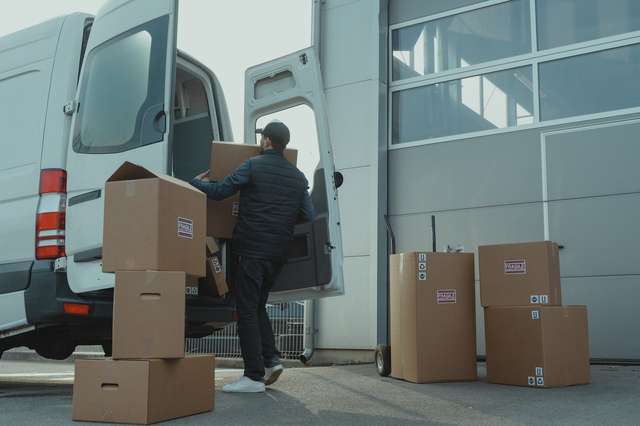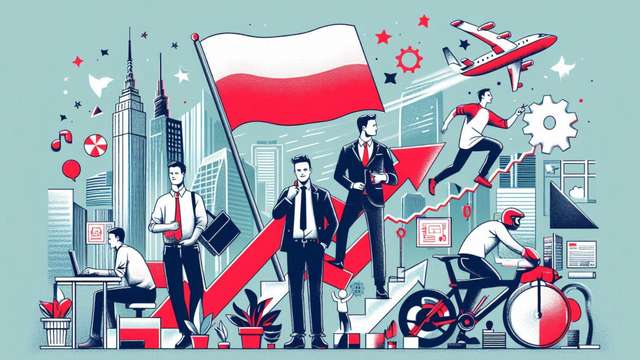
Permanence of supply chains is one of the most important elements of national economies, but the process shouldn’t be viewed only on a macro scale. The last several months have shown that the assurance of deliveries is crucial for the functioning of business and factories around the world, also in terms of the availability of parts and the possibility of their quick supply.
Table of Contents
In the spring of last year, the issue of supply problems was almost non-existent. Of course, with certain forces - especially the forces of nature - it is simply impossible to compete. It is difficult to even predict such troubles, but you should always be prepared for them. A volcanic eruption, a powerful typhoon or even human error, is something that affects the functioning of customers around the world and can quickly hit the economies of many countries.
Constant vigilance
A perfect example of this last argument is what happened in March in the waters of the Suez Canal, where human error has blocked a route that takes 15 percent of world trade. Due to the blockage of the canal by the container ship Ever Given, Egypt, where the route is located, was losing a staggering 15 billion dollars each day. However, it was only a fraction of how much one man's mistake hit world markets.
At the time of the blockade, no one knows how long it may take, and no wonder that transport companies decided to make desperate moves. - Many companies decided to sail around Africa and add 12 days of sailing to minimize losses. - said Guy Platten, President of the International Chamber of Shippingin an interview with the BBC.
The blockade of the Egyptian canal is, of course, just one example. However, you can find many more, such as a huge fire at the Renesas Electronics factory, that owns 30 percent of the global microcontroller supply market for the automotive industry. Effect? Huge drops in stock markets and losses in billions of dollars.
Pandemic reality
There was a lot of publicity about all these events, but none of them was able to match the storm that come out in the spring of last year. The outbreak of the coronavirus pandemic was something that was hard to predict - despite the fact that many people have predicted it for a long time. When the numbers of the infected grew, and more countries began to close, the first cracks began to appear on the so far strong chain of global and local supplies.
Again, all it started in China. The magic of cheap production behind the Great Wall is no longer as tempting as it was a few decades ago, but it must be remembered that Beijing is still responsible for over 21 percent of imported goods to nearly 200 countries around the world. Impressive, right?
Confidence = calmness
We shouldn't have any illusions. The global industry is changing rapidly, all thanks to technological development. Many processes can already be carried out automatically, and according to a report by McKinsey & Company, by 2030, only in the United States, 75 to 375 million people will have to look for a new job! This is thrilling, but it also shows that the scale and speed of change are bigger and faster than ever. The value of retail exchange in the global automation market alone is expected to reach 19,4 billion dollars by 2023, the "Retail Automation Market Research Report" reads.
Bigger automation brings a number of benefits, but also dangers. In case of the departure of one specialist, replacing him with another is relatively easy. It is different in the case of a breakdown in the factory, when we are not sure that the spare parts will be delivered quickly. It could be a huge blow.
A crisis situation shows very quickly who was prepared for it. It is similar in the industrial automation. Plants and factories, regardless of the size and scale of production, must be ready for emergencies and the need for immediate response. Failure of equipment necessary for further production? Acquiring a part that is no longer available under the warranty or is very difficult to find on the market? These are situations that may not only stop the entire process and lead to losses of a specific company, but also have a strong impact on its partners and recipients. What this situation needs to be done?
A new advantage
The answer is simple. Be prepared. Cooperate with suppliers who ensure the delivery of specific parts and offer the shortest lead time. Automation Trader is just such a company. It gives you confidence and, by the way, is also able to offer components from selected manufacturers that have already been withdrawn from sale. - For us, it is an absolutely key issue - explained Maciej Szczotka, the manager of the company. - Reliability and speed of delivery of our distinctive features. We take this very seriously - he added.
Mary Long, director of the Supply Chain Forum at GSCI, also argued that in uncertain pandemic times, such issues are of key importance. - The disruptions caused by the pandemic have led companies to focus on other aspects. The reliability of deliveries and shortening their time are today a new competitive advantage - she said.
Automation Trader complies with these conditions. The company operates globally, so even lockdown is not a problem for us. All thanks to the possibility of using warehouses all over the world.
We have been living in a state of constant uncertainty for over a year. It concerns many areas of our life, including industry. Its ability to respond to threats resulting from downtime, shortages of supplies or unavailability of necessary components resonates very widely. So in order to save yourself unnecessary stress and - literally - save money, there is no choice today, you should bet on reliable and trusted partners. Such as Automation Trader.






